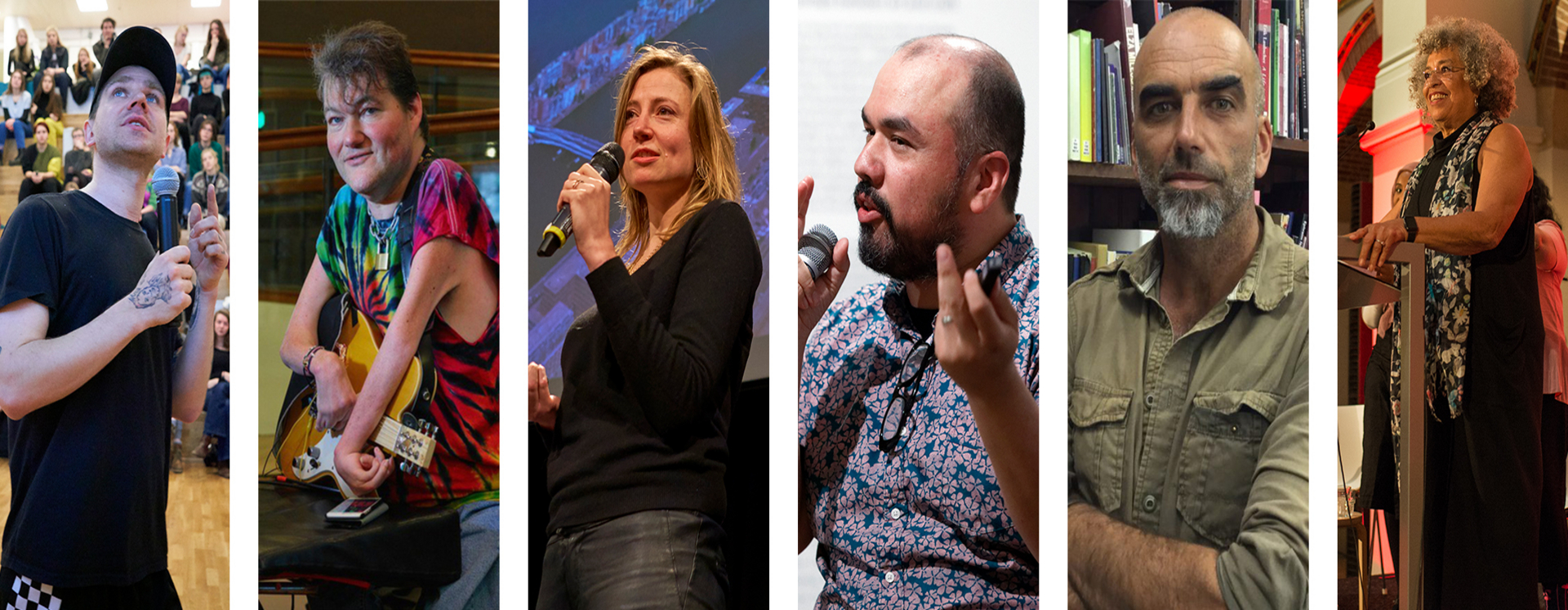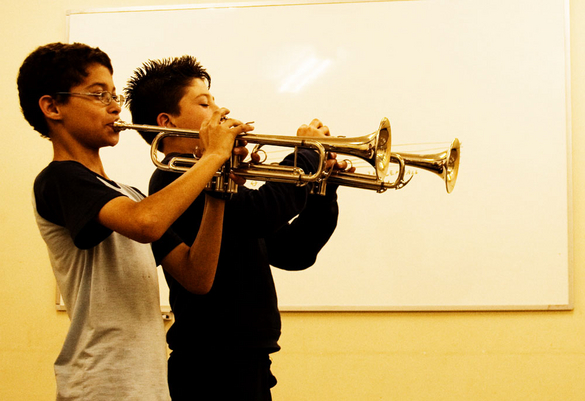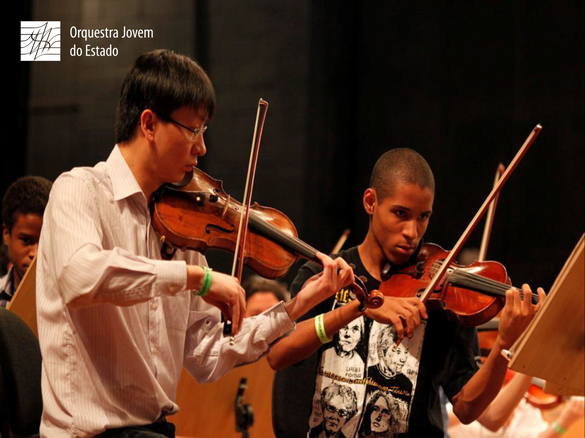The best musicians build the foundations
Amsterdam’s arts funding programme for the 2013 to 2016 period provides for music lessons for all primary school children. The conservatory in São Paulo, Brazil, has extensive experience teaching music to many kinds of children, so in order to gain from this experience and thereby further the aims of the Dutch municipality, in 2012 the Conservatorium van Amsterdam (CvA) embarked on a collaboration with its Brazilian counterpart. The CvA’s director Janneke van der Wijk tells: ‘In recent years, the São Paulo conservatory has been responsible for the Guri programme.’
Guri means free music lessons for all children
Paulo Zuben is the artistic and educational director at the São Paulo Conservatory. In late August 2014 he visited Amsterdam and at an expert meeting there he presented the Guri project – which has now been running for 30 years – to teachers and musicians from the CvA and other music schools: the impressive achievements were crowned with a concert at the Muziekgebouw aan het IJ by the São Paulo State Youth Symphony Orchestra, which is made up of musicians who got started on their career through the Guri project. Guri is currently providing music lessons to 13,000 children aged six and above, with 180 teachers at 46 venues. The children all get six hours of high-quality music teaching each week, in singing, theory and instrument playing. Zuben explains that, ‘The instrument plays an important role in the children’s life so they feel responsible for it, and for example, in 40 years only two instruments have been lost. The music has a major impact on them and their entire family. We do lots of evaluations and the children keep diaries so we get to know how Guri is affecting their development.’
Social impact
‘Through music the children learn to concentrate and collaborate, and to nurture self-discipline and social skills,’ explains Zuben. ‘The project also has a positive impact on their social environment. It offers safety, and the kids get clothing and food. So music is offering children from the São Paulo slums new hope for the future. We also try to engage family members in the project. Take for example our year-long foundation courses for mothers – we’re usually dealing with single mothers – where they can learn the language of music, enabling them to talk with their children about it and understand what they’re up to. We also organise collective social activities in close collaboration with social workers. Our teachers are confronted with drug use, domestic violence and child abuse. We have to deal with that reality, so getting expert guidance is crucial. We in any case achieve many successes on a social level. The Guri children support each other, work well together and display a sense of responsibility. They also do well at school.’
Quality counts
Ruud van Dijk, associate director and head of the Jazz department at the CvA, sees the uncompromising quality of the Guri project as particularly persuasive. ‘You can’t help getting enthused when you hear these children play. The arrangements and the composition of the ensembles are just as they should be. The quality is high and the results convincing, so the children can tell that they’re being taken seriously.’ The philosophy behind Guri is one of the most important factors behind its success, Van Dijk believes. Zuben explains how participating composers and arrangers are instructed to compile their own repertoire for the project. ‘They choose from a specific spectrum of instruments and rhythms and cultivate it through the six levels. It wouldn’t do any good to depend on a single classic standard. If the music isn’t working for the children, it won’t work at all. It’s incredibly important that the music connects with the children’s perspective, which grows out of a deeply rooted Brazilian musical tradition.’ The concert by the São Paulo Youth Orchestra gave a taste of the musicians’ great talent and temperament to this enthusiastic audience – which included Dutch education minister Jet Bussemaker.
Passionate ambassadors for good music education
Janneke van der Wijk sees the Guri approach as a very attractive proposition: ‘In the Netherlands, you find there’s a wider gulf between broad-based primary music teaching and top-level coaching. In our collaboration teachers of our conservatory are teaching the Guri children in São Paolo. When our teachers return, they’re passionate ambassadors for a good music education system at the primary level. In the Netherlands we also aim for a system with a firm base of musical education and attention for educating exceptional talent.’
Top-level studies
The concertmaster of the São Paulo youth orchestra is currently studying for a bachelor degree at the CvA. When asked what benefits could be expected from this collaboration for the Brazilian conservatory, Zuben explains that they are learning how to prepare talented musicians for the international stage. ‘To get the best Guri students up to the highest level, the CvA’s experience with teaching the most talented musicians will help. What’s more, the best Guri students will have an opportunity to complete their studies in Amsterdam. And Masters teachers and inspiring instrumentalists will also be giving lessons as part of our project – to our own teachers as well.’
Paulo Zuben returns to the Conservatory in November. He participates in a sequel expert meeting in collaboration witht the Fonds voor Cultuurparticipatie and holds a presentation for students of the Music Teacher programme about what it is like to teach in the favelas.
On Sunday 8 November Paulo will participate in a programme on theatre arts and social change, in the context of the Erasmus award. He will participate in a discussion with Frie Leysen and Peter Sellars. This programme is a collaboration with Stichting Praemium Erasmianum, DutchCulture, Conservatorium van Amsterdam and Stichting Amsterdams Leerorkest and is funded by the Prins Bernhard Cultuurfonds. Tickets are available at the Compagnietheater.




